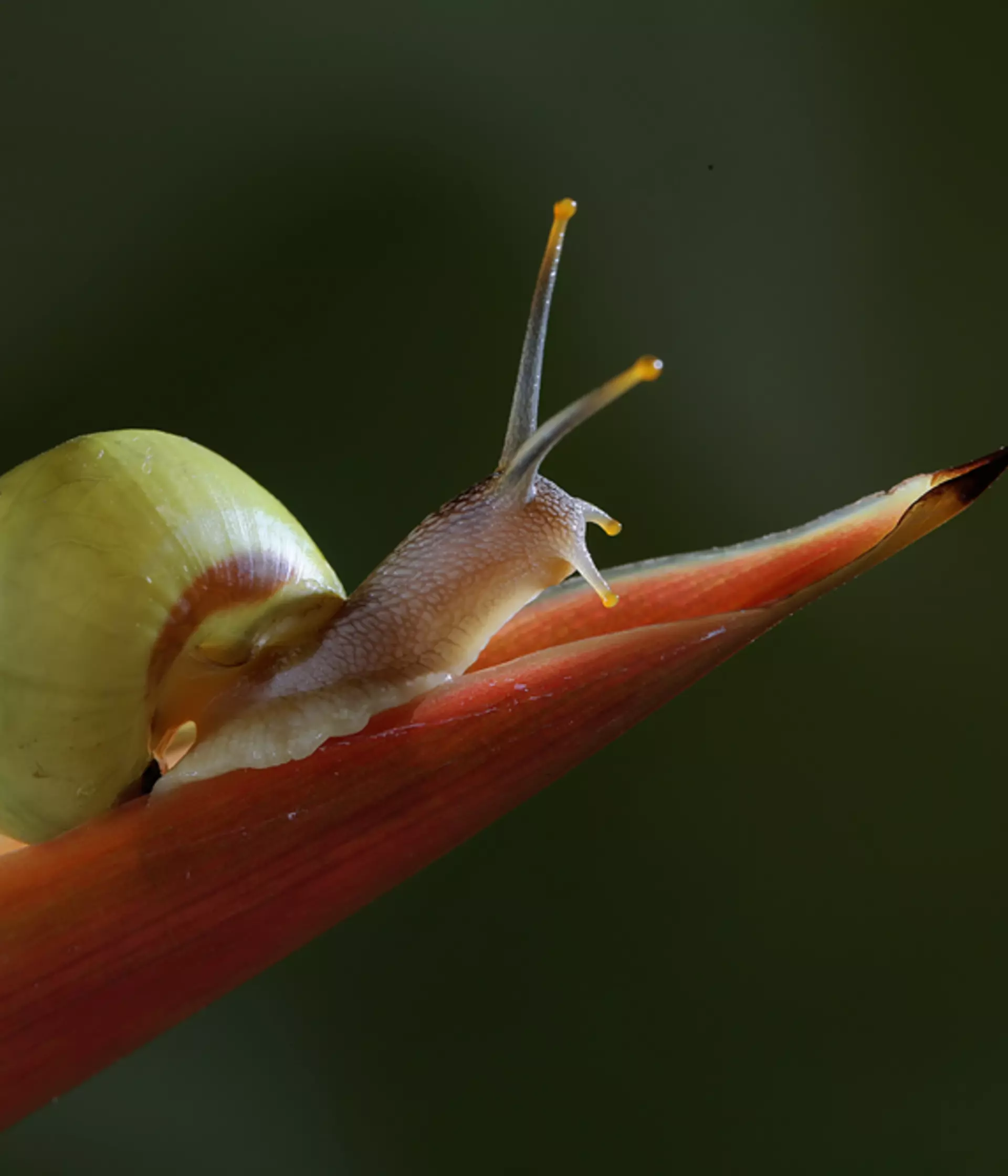Zoo conservation goes big for tiny snails
Some of the amazing London Zoo conservation that goes on behind the scenes here includes a giant project for some tiny tropical creatures – our international partula conservation programme, which is one of the biggest reintroduction programmes ever attempted.
Since 1994 we’ve been co-ordinating the conservation breeding programme for 25 species of partula snail in 16 zoos worldwide. These miniscule snails measure 1-2cm in length, have lovely long eye stalks and sport stripy spiral shells. They graze on decayed and microscopic plants and are excellent at recycling nutrients from plant debris to support their wider ecosystem.
More than a conservation breeding programme
As well as breeding them in the zoo we have done extensive work in the Pacific islands where these fingernail-sized snails are from, collaborating with the French Polynesian government to create safe spaces for reintroduction, including a predator-proof reserve constructed on Tahiti and trees identified for the repatriation of snails into their home valleys.
The tropical tree snails – some critically endangered and many extinct-in-the-wild – are reared here as part of a vital breeding and reintroduction programme to save the species from total extinction. Snails bred at London Zoo are released on the islands of French Polynesia in locations where invasive predators once nearly wiped them out.
London Zoo led a team to rescue the last few surviving individuals in 1994 to begin the conservation breeding effort. Since the project started more than 15,000 individual snails have made the journey back to French Polynesia.
In April 2023, thousands of Extinct-in-the-Wild and Critically Endangered Partula snails reared at zoos, including London Zoo and Whipsnade Zoo, were flown over 15,000km to the islands of Moorea and Tahiti for the largest reintroduction in history!
This collaborative conservation initiative is helping to bring these species back from the brink of extinction and shows the conservation power of zoos to reverse biodiversity loss.
The science of partula snail conservation
Restoring Polynesian history
We saved the remaining Polynesian snails before they could be wiped out forever, and we have been breeding them ever since to restore their precious ecosystem and place in history.
Reintroducing species back to the wild
In 2019 we returned two species back to the wild after a gap 25 years. Most of the Society Islands’ endemic snails were wiped out in the late 1980s and 90s, after the invasive predatory rosy wolf snail (Euglandina rosea) was introduced to get rid of another invasive species, the African giant land snail (Lissachatina fulica). It didn’t work and instead the rosy wolf snail targeted the partula and many species were lost or close to extinction shortly after its arrival on the island.
In 2019 more than 4,000 Partula rosea and Partula varia snails were released on the islands of Huahine and Moorea in the Society Islands in the South Pacific.
You can catch conservation in action in our Partula Lab, which has a viewing window from Tiny Giants. It’s a working lab so you might be lucky enough to see one of our conservationists at work, doing everything they can to save the species.
We're part of ZSL, and we carry out wildlife conservation across the world.
Conservation at ZSL
Protecting Asiatic lions in the Gir Forest
There are approximately 600 Asiatic lions left in the Gir Forest of Western India, their last remaining natural habitat.
Protecting a living piece of evolutionary history
With less than 150 pairs now remaining, our work is saving a species on the brink of extinction.
Replanting mangrove forests
Our projects in the Philippines have restored and protected over 900 hectares of abandoned fishpond mangroves - around the size of 1,260 football pitches.
